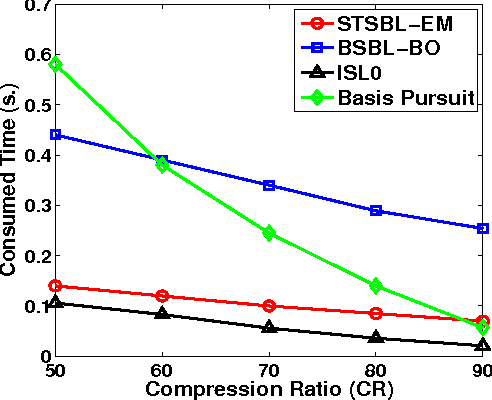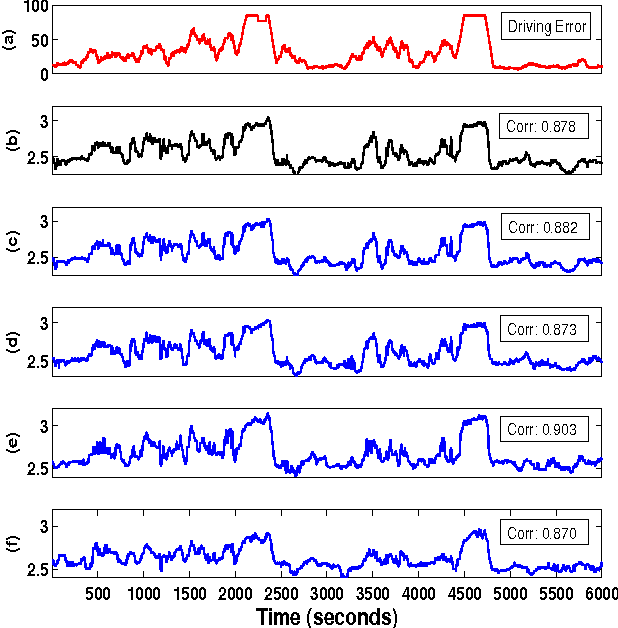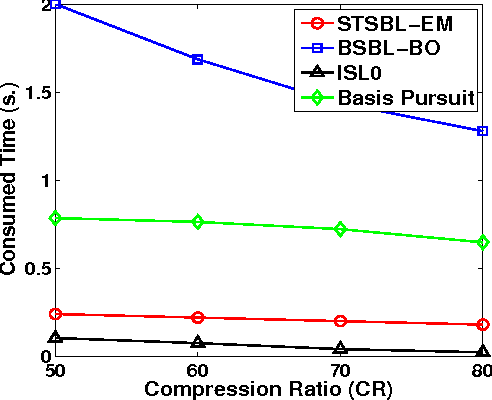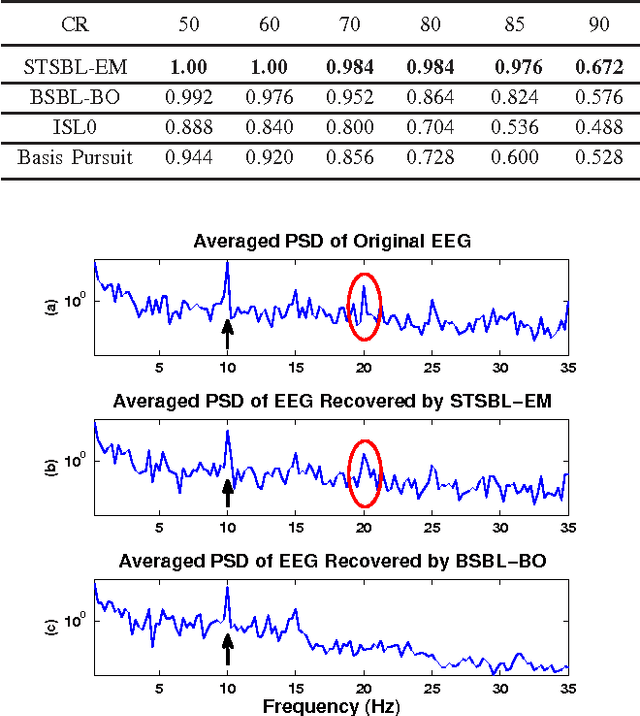Zhouyue Pi
Spatiotemporal Sparse Bayesian Learning with Applications to Compressed Sensing of Multichannel Physiological Signals
Nov 15, 2014



Abstract:Energy consumption is an important issue in continuous wireless telemonitoring of physiological signals. Compressed sensing (CS) is a promising framework to address it, due to its energy-efficient data compression procedure. However, most CS algorithms have difficulty in data recovery due to non-sparsity characteristic of many physiological signals. Block sparse Bayesian learning (BSBL) is an effective approach to recover such signals with satisfactory recovery quality. However, it is time-consuming in recovering multichannel signals, since its computational load almost linearly increases with the number of channels. This work proposes a spatiotemporal sparse Bayesian learning algorithm to recover multichannel signals simultaneously. It not only exploits temporal correlation within each channel signal, but also exploits inter-channel correlation among different channel signals. Furthermore, its computational load is not significantly affected by the number of channels. The proposed algorithm was applied to brain computer interface (BCI) and EEG-based driver's drowsiness estimation. Results showed that the algorithm had both better recovery performance and much higher speed than BSBL. Particularly, the proposed algorithm ensured that the BCI classification and the drowsiness estimation had little degradation even when data were compressed by 80%, making it very suitable for continuous wireless telemonitoring of multichannel signals.
* Codes are available at: https://sites.google.com/site/researchbyzhang/stsbl
 Add to Chrome
Add to Chrome Add to Firefox
Add to Firefox Add to Edge
Add to Edge